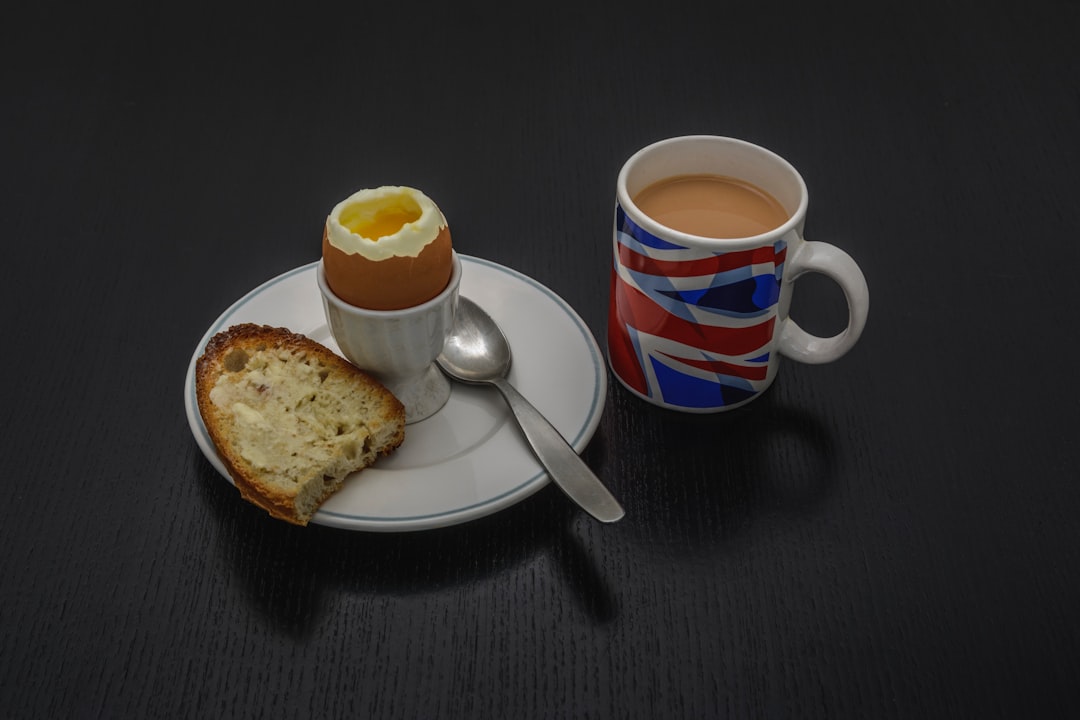Egg butter
In its most basic form, egg butter is comprised of two main ingredients: eggs and butter. But if you look closer you'll find that with a few simple tweaks, one can produce an array of flavor combinations that would tantalize any palate. For instance, by adding some spices like curry powder, thyme, oregano, and other herbs, you can take the standard egg-butter dish to a whole new level.
But the real magic of egg butter lies in its versatility. This dish can be served for breakfast, lunch, or dinner, and can be paired with almost any side dish. From the classic boiled potatoes and ham, to something more adventurous like kimchi and vegetarian chili, there's no wrong way to enjoy egg butter.
As if its deliciously delightful flavor wasn't enough, this dish is also super easy to prepare. All you need is eggs, butter, and whatever spices and herbs you want to add. Then, fry up the eggs and butter together in a large skillet until the egg whites are just set and the yolks are still runny. The result? A savory, creamy dish that can be enjoyed any time of day.
So if you're looking for a delicious and versatile dish to add to your weekly meal rotation, then you should consider giving egg butter a try. With its simple yet impressive flavor, it's sure to impress even the most discerning of eaters.
Egg butter recipes
Amazing Egg butter recipes sourced from the web.
The origin of Egg butter
The delectable dish known as egg butter has been tantalizing taste buds since the late 18th century. Originally created in the Dutch East Indies, egg butter quickly became a favorite among locals and travelers alike.
The exact origins of egg butter are somewhat obscure, but stories abound of how it came to be. Some say that the first appearance of egg butter was due to a fortuitous mistake—a cook preparing a custard for the Sultan accidentally left it on the stove for too long, resulting in a thick, creamy texture. Others insist that it was created by an elderly woman who discovered that eggs could be cooked until they had a similar consistency to butter, which she then flavored with spices and served at her humble abode.
Regardless of its origin, egg butter quickly found its way onto menus the world over. In the Netherlands it is often consumed with breakfast, topped on bread or pancakes for a delicate, savory treat. Across the pond, in America, egg butter is often consumed as a spread, particularly in the wintertime, when the flavor of cinnamon and vanilla brings comfort and warmth to chilly days.
Egg butter has also served as a canvas upon which countless chefs have created their own unique variations over the years. From savory combinations such as pesto egg butter or bacon egg butter, to sweet concoctions such as chocolate-dipped egg butter or caramel egg butter, there is no shortage of recipes inspired by this delectable combination of eggs and butter.
So the next time you have a craving for something rich and creamy, why not give egg butter a try? You're sure to find yourself enchanted by its timeless flavor — a delectable reminder of the past.
Types of Egg butter
Egg butter is a unique and delicious dish that can be found in many kitchens around the world. Its name may not be as recognizable as its popular counterparts, such as scrambled eggs and fried eggs, but its versatility and flavorsome profile make it a worthy addition to any breakfast plate. But what exactly is egg butter? As it turns out, there are actually several different types of egg butter dishes.
The most common type of egg butter is simply a mixture of eggs and butter that has been whipped together. This basic version can be utilized in many other egg-based recipes, such as omelets. Additionally, this egg butter can also be seasoned with herbs and spices, such as parsley and paprika, to create an even more flavorful end product.
Another type of egg butter is known as shirobako, which is a popular Japanese egg dish. This version involves whisking together eggs, butter, and a variety of vegetables. The mixture is then poured into a skillet over medium heat, where it is cooked until it forms a soft cake-like texture.
Yet another type of egg butter is called shakshuka, which originated in the Middle East. This egg dish requires simmering eggs in a tomato and pepper-based sauce. The sauce itself is infused with spices like cumin, garlic, and chili, making the end result an incredibly savory and flavorful meal.
Finally, there is tortilla de huevos, which is an Spanish version of egg butter. This dish utilizes eggs, butter, diced onions, and potatoes. After being cooked in a pan, the resulting egg mixture is wrapped in a warm corn tortilla for a unique and delicious breakfast wrap.
All in all, egg butter is a truly versatile dish that can be tailored to suit many different tastes and preferences. Whether you’re looking for a simple combination of eggs and butter or a tasty, spicy feast of vegetables, there is an egg butter dish for everyone.



